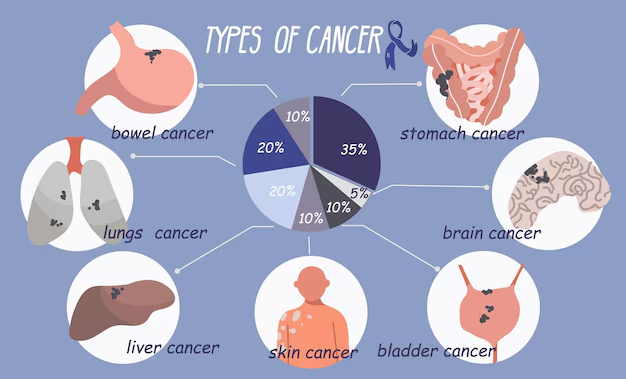Understanding Carbohydrates: A Key to Healthy Living
Along with proteins and lipids, carbohydrates are one of the three primary macronutrients that our bodies require for optimal operation. They are primarily known for being a significant source of energy, especially for our brains and muscles during physical activities. Carbohydrates can be categorized into three main types: sugars, starches, and fiber, each playing a unique role in our nutrition and overall health. Let’s start understanding about carbohydrate.
Simplest form of carbohydrates
Let’s start with sugars, the simplest form of carbohydrates. These can be single sugar molecules, known as monosaccharides (like glucose and fructose), or pairs of sugar molecules called disaccharides (such as sucrose and lactose). Because they are quickly absorbed into the bloodstream, sugars provide immediate energy. You can find these simple carbohydrates in fruits, honey, and dairy products.
Complex carbohydrates
On the other hand, we have starches, which are complex carbohydrates made up of long chains of glucose molecules. Whole grains, rice, and potatoes are rich sources of starches. Their complex structure causes them to digest more slowly, which delays the release of energy. This slow digestion is particularly beneficial for maintaining stable blood sugar levels, making it a great choice for those managing diabetes.
Essential carbohydrate that our bodies cannot digest
Then there’s fiber, another essential carbohydrate that our bodies cannot digest. Fiber is essential for digestive health and can be found in plant-based meals such as fruits, vegetables, legumes, and whole grains It helps keep our bowel movements regular and can prevent constipation. Additionally, fiber contributes to a feeling of fullness, which can be helpful for weight management.
When it comes to health benefits, it’s important to note that not all carbohydrates are created equal. Vitamins, minerals, and antioxidants included in whole foods, such as fruits, vegetables, and whole grains, promote general health and aid in the prevention of chronic illnesses. Refined carbs, on the other hand, like white bread and sugary snacks, frequently lack essential nutrients and, if ingested in excess, can cause health problems.
Understanding the glycemic index (GI)
Understanding the glycemic index (GI) can also help us make better choices about carbohydrates. Foods with a high GI, like white bread and sugary cereals, can cause rapid spikes in blood sugar. Low-GI foods, on the other hand, such as whole grains and legumes, cause blood sugar levels to rise more gradually and under control.. For those looking to manage their blood sugar, opting for low-GI carbohydrates can be particularly beneficial.
Additionally, carbohydrates are essential for brain function. Glucose is a major energy source for our brains.. When we don’t consume enough carbohydrates, our bodies may struggle to provide the necessary glucose, leading to fatigue, irritability, and difficulty concentrating. Therefore, including an appropriate amount of carbohydrates in our diets is essential for cognitive function.
Stimulates the release of serotonin, a neurotransmitter that helps regulate mood
Understanding carbohydrates can also affect our mental health and mood. Eating carbohydrates stimulates the release of serotonin, a neurotransmitter that helps regulate mood. This connection explains why many people crave carbohydrate-rich foods when they’re feeling down or stressed. However, it’s crucial to choose healthy carbohydrate sources to avoid the negative effects of excessive sugar consumption.
Dietary guidelines suggest that carbohydrates should make up about 45% to 65% of our total daily caloric intake. This range allows for a balanced diet that includes a variety of nutrients. However, individual needs can vary based on factors like age, sex, activity level, and overall health. Personalized advice can be obtained by speaking with a licensed dietitian or other healthcare expert.
Enhance your overall nutrition
Incorporating a variety of carbohydrate sources into your diet can enhance your overall nutrition. Whole grains like quinoa, brown rice, and oats are excellent choices, as are fruits and vegetables, which offer a wealth of vitamins, minerals, and antioxidants. Another nutrient-dense choice is legumes, such as beans and lentils, which offer both protein and carbs.
When eating carbs, it’s also critical to pay attention to portion quantities. Even healthy sources can contribute to weight gain if eaten in excess. Practicing portion control and being aware of your overall caloric intake is essential for maintaining a healthy weight.
Conclusion
In summary, carbohydrates are a vital macronutrient that serves many functions in our bodies. They promote brain function, give off energy, and enhance general wellness. But what matters most is the quality of the carbs we eat. But what matters most is the quality of the carbs we eat. Choosing whole food sources over refined options can lead to better health outcomes. By understanding our individual carbohydrate needs and incorporating a variety of sources, we can enhance our nutritional quality. Ultimately, a balanced diet that includes the right amount of carbohydrates is essential for optimal health and well-being.











